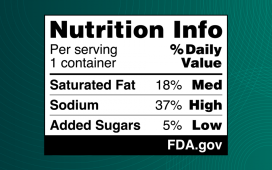Generally moderate- or low-quality evidence for preventive benefits, no effect, or increased risk
THURSDAY, May 31, 2018 (HealthDay News) — The data on popular supplements show no consistent cardiovascular benefit, according to a study published in the June 5 issue of the Journal of the American College of Cardiology.
David J.A. Jenkins, M.D., Ph.D., from the University of Toronto, and colleagues examined publications from 2012, before and including the U.S. Preventive Services Task Force review, and performed meta-analyses on cardiovascular disease outcomes and all-cause mortality.
The researchers found that the evidence for preventive benefits (folic acid for cardiovascular disease, folic acid and B-vitamins for stroke), no effect (multivitamins, vitamins C and D, β-carotene, calcium, and selenium), or elevated risk (antioxidant mixtures and niacin [with a statin] for all-cause mortality) was generally moderate- or low-quality. There was no demonstration of conclusive evidence for the benefit of any supplement across all dietary backgrounds, so any benefits must be balanced against potential risks.
“In the absence of further studies, the current data on supplement use reinforce advice to focus on healthy dietary patterns, with an increased proportion of plant foods in which many of these required vitamins and minerals can be found,” the authors write.
Several authors disclosed financial ties to pharmaceutical and food companies, including Loblaw Cos. Ltd., which provided funding for the study.
Copyright © 2018 HealthDay. All rights reserved.








